-
Interview with Herb Morris
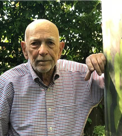
Herb Morris

Sabine Tsuruda
Herb Morris ‘51, UCLA undergraduate alumnus, was interviewed by Sabine Tsuruda. Herb is professor emeritus in the UCLA Department of Philosophy and School of Law, and his research focused on legal and moral philosophy. His current research is at the intersection of literature, art, and philosophy, and his latest book is Disclosures: Essays on Art, Literature and Philosophy (2017). Sabine is a J.D./Ph.D. student in the Department of Philosophy who received her J.D. in 2016, and is completing a dissertation on the moral, legal, and political philosophy of work.
ST: Let’s start from the beginning. What initially attracted you to philosophy at UCLA as an undergraduate?
HM:I think my interest in philosophy may have arisen because of events that go back into my very early childhood. I was six years old and kept a secret from my mother and father that I regarded as very significant. I felt that my not telling the truth was keeping from them something of importance. I felt guilty and apart from them in a way I had not before. From that day onwards in my life I felt that I was outside looking in. Even though I was very successful, popular, and good at sports, life felt like a mystery to which I did not have an answer. I began to read voraciously at about the age of ten. I read Dostoevsky’s novels while in high school.
I started off at UCLA as an economics major and then as a political science major. These disciplines didn’t seem to provide me with the kinds of answers I was searching for. Life was a puzzle for me. After a course I took at UCLA called “Logic in Practice,” taught by Abe Kaplan, I thought philosophy was an area that might hold for me what I was seeking. So I decided to switch my major.
-
Interview with Barbara Herman

Dan Ranweiler
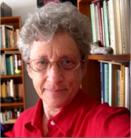
Barbara Herman
Barbara Herman is Gloria and Paul Griffin Professor in Philosophy. Her research interests are moral philosophy, Kant’s ethics, the history of ethics, and social and political philosophy. Her article “We are Not Alone: A Place for Animals in Kant’s Ethics” will appear in the forthcoming volume of essays Kant on Persons and Agency. She was interviewed by Daniel Ranweiler. Daniel is a second-year Ph.D. student in the Department of Philosophy.
BH: Let’s start at the beginning. You have an interesting way that you came to philosophy from undergrad. Could you say a bit about your academic trajectory?
DR:I went to Cornell with the thought of either majoring in mathematics or being pre-med. It was pretty clear by my junior year that though I was fascinated by and interested in mathematics, and got good grades, I didn’t have the chops for it. It struck me that it was not a thing to do unless you could do it well. I was also serious about doing pre-med, but then I made a decision pretty early on, though after taking organic chemistry, that the whole process of going to medical school would take forever. (Little did I know how long it would take to do other things!) And so I wound up being focused on history and literature and math. I was ok with being all over the place so long as things stayed interesting. I took philosophy courses as an undergraduate and really didn’t like them. I couldn’t shake the sense of its being about cleverness, and while I could be clever, I didn’t like where it took me. I was interested in ideas; I liked thinking about thinking, about the way people thought about all sorts of things. I was also interested in narrative. I wound up with a double major in mathematics and history and thought I would go on in history, primarily intellectual history, in graduate school.
-
Interview with Calvin Nomore
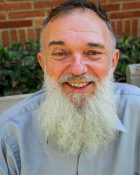
Calvin Normore
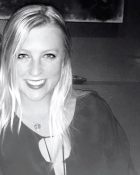
Ally Peabody
Calvin Normore, professor at UCLA since 1996, has just been named the first Brian P. Copenhaver Professor. His research focuses on medieval and early modern philosophy, the history of logic, and political philosophy, and he is currently working on a book manuscript entitled Descartes’ Ontology of Everyday Life, co-authored with Deborah Brown. He was interviewed by Ally Peabody. Ally is a second-year student in the Department of Philosophy. She is particularly interested in ethical, meta-ethical, and ontological questions involving moral standing.
AP: What brought you to philosophy and what made you want to become a professional philosopher?
CN:I grew up in a small town in Newfoundland, but it was the biggest town for a good distance around. There were no bookstores, but there were two drugstores that had little revolving racks of books and there was a public library. I was going to a Roman Catholic high school so I knew there was such a thing as philosophy from school. In the drugstores I found two books, one was Jacques Maritain’s A Preface to Metaphysics and the other was a collection of selections from Aristotle. I brought them home, and I didn’t understand either of them but I could tell that these were heavy-duty stuff on first reading. At the public library I found a couple of things of Bertrand Russell’s including his Why I’m Not a Christian and parts of his autobiography, and I read those and I decided “OK, I want to be Bertrand Russell.” And so I set out to be Bertrand Russell. When I went up to university I wanted to do math and philosophy. But I had the following relationship to math: I liked having done it but I didn’t actually like doing it that much. Whereas the philosophy I liked actually doing, so I moved more over into philosophy. But I didn’t intend to become a pro at all. I think the thought never crossed my mind in those days. Even when I was in graduate school, for a lot of my fellow graduate students at that time, being an academic wasn’t what they wanted to do particularly. So that all came much later, by accident again.
-
Interview with Josh Armstrong

Josh Armstrong
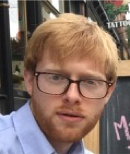
Torsten Odland
Josh Armstrong is Assistant Professor of Philosophy. His research focuses on philosophy of language, philosophy of mind, and cognitive science. His research articles include “Coordination, Triangulation, and Language Use” and a paper entitled "The Problem of Lexical Innovation," which recently appeared in the journal Linguistics and Philosophy. He has also published a review for The Los Angeles Review of Books. He was interviewed by Torsten Odland. Torsten is a second-year Ph.D. student in the Department of Philosophy.
TO: When and how did you first become interested in philosophy?
JA:I was first introduced to philosophy in my junior year of high school. I went to a religious high school here in Southern California, and it required all students to take a philosophy of religion class. The teacher (who, incidentally, was also my teacher for a rock climbing course) focused the class first on arguments for and against a traditional monotheistic God and then on issues related to cross-cultural variation in religious ideas and practices. I absolutely loved the topics of the class, as well as the teacher’s quasi-Socratic style of running it. That summer another student named Chris Weaver (who is now an Assistant Professor at the University of Illinois) and I decided we wanted to do a reading group—we read Alvin Plantinga’s God, Freedom and Evil and a book by Marilyn McCord Adams [a recently deceased emerita member of the UCLA faculty]. I remember being blown away by the thought that one could engage with large, systematic questions about the world in a way that was both technical and clear. I was totally hooked.
-
Interview with Gabbrielle Johnson

Gabrielle Johnson

David Dixon
Gabbrielle Johnson is a sixth-year Ph.D. student in the Department of Philosophy. She received the UCLA Distinguished Teaching Award in 2016-17. Her dissertation is within philosophy of psychology and concerns the structure and content of implicit bias. David Dixon is a philosophy major and chief editor of the UCLA undergraduate philosophy journal Meditations.
DD: What brought you to philosophy and when in your life did that happen?
GJ:I came into college not knowing anything about college. I was the first in my family to go to college and, in fact, my dad hadn’t finished high school. The only reason I applied to college was because my high school counselor had pressured me to. So, I submitted exactly one application—to Ohio State University—the day it was due.
I started as a math major, then I switched to political science. Then I took a philosophy class taught by Robert Kraut.
If you’ve ever met Professor Kraut, you’d know it’s a bit of an understatement to say he’s a boisterous person who makes his opinions clear. Students would enter thinking there’s no right answer to these philosophical questions, but he taught us early on that there was, that there are better or worse ways to approach the issues, and by being systematic and rigorous we can be confident that the answers we arrive at are the right ones. I was fascinated both by the philosophical method and how he employed it.
The final push came one day when Professor Kraut asked me, in the middle of class, “Are you majoring in philosophy?” And I was like, “No.” And he responded, “You are now. Come see me.”
-
Interview with Amy Kind
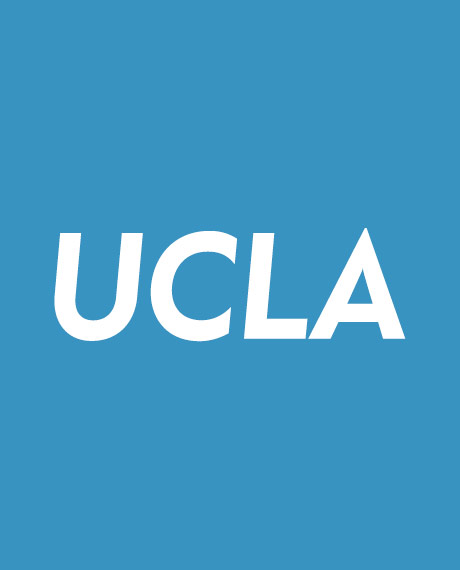
Amy Kind
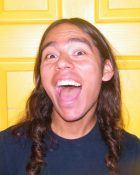
Jacob Reid
Amy Kind ’94, UCLA philosophy graduate alumna, was interviewed by Jacob Reid. Amy is professor of philosophy at Claremont McKenna College. Her research focuses on consciousness, imagination, metaphysics, and philosophy of mind. Jacob is a second-year Ph.D. student in the Department of Philosophy, with research interests in metaphysics and epistemology of memory as well as collective agency and collective memory.
JR: I have always been curious as to how people get into philosophy. I once spoke to an undergrad who had switched from physics to a philosophy major. She said that, before the beginning of her second year, she didn’t even know philosophy was “a thing.” Was that you at all?
AK:What happened to me was a little different from that. I got my first exposure in high school where I took a class called “The Shaping of Western Thought”. The teacher had an M.A. in philosophy and we ended up reading a lot of philosophical figures. It made me not necessarily want to be a philosopher, but it made me want to take philosophy in college. I took an intro to philosophy course my first semester at Amherst. I don’t think I did super well but I liked it. I just decided to take another philosophy course and then another. All of a sudden I was like, “I’m a philosophy major.” Even then I wasn’t sure that I was going to go on to graduate school in philosophy. I was also totally interested in journalism. I did a summer internship at a local newspaper and ended up having to write obituaries all summer! Then . . . I thought I would go to law school. Between my junior and senior year of college I determined there was no way I would take both the LSAT and the GRE. I made my decision then. I chose philosophy and there has been no looking back.

